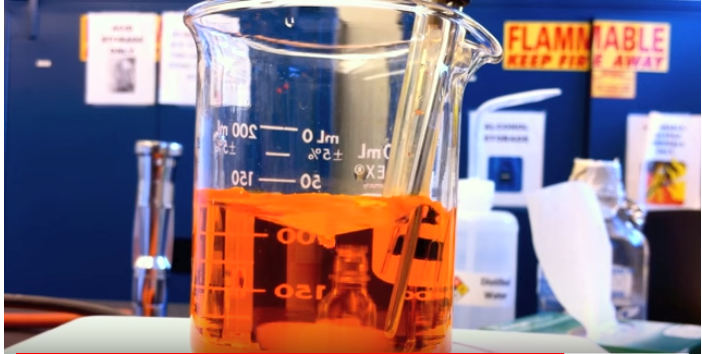Manufacturer, Distributor, Supplier, BromoPhenol Red based in visakhapatnam India.
Vizag chemical BromoPhenol Red or Phenol red exists as a red crystal that is stable in air. Its solubility is 0.77 grams per liter (g/L) in water and 2.9 g/L in ethanol. It is a weak acid with pKa = 8.00 at 20 °C.
A solution of phenol red is used as a pH indicator: its color exhibits a gradual transition from yellow to red over the pH range 6.8 to 8.2. Above pH 8.2, phenol red turns a bright pink (fuchsia) color.
Phenol red (pH indicator)
below pH 6.8 above pH 8.2
6.8 ↔ 8.2
This solution contains a pH indicator which helps in monitoring of the pH changes in the cell culture. It will change from red to yellow color when the pH value decreases.
In crystalline form, and in solution under very acidic conditions (low pH), the compound exists as a zwitterion as in the structure shown above, with the sulfate group negatively charged, and the ketone group carrying an additional proton. This form is sometimes symbolically written as H2+PS− and is orange-red. If the pH is increased (pKa = 1.2), the proton from the ketone group is lost, resulting in the yellow negatively charged ion denoted as HPS−. At still higher pH (pKa = 7.7), the phenol's hydroxide group loses its proton, resulting in the red ion denoted as PS2.
In several sources, the structure of phenol red is shown with the sulfur atom being part of a cyclic group, similar to the structure of phenolphthalein. However, this cyclic structure could not be confirmed by X-ray crystallography.
Several indicators share a similar structure to phenol red, including bromothymol blue, thymol blue, bromocresol purple, thymolphthalein, and phenolphthalein. (A table of other common chemical indicators is available in the article on pH indicators.)
BromoPhenol Red Major Application
Sensors,
sol-gel matrix,
recording materials,
thermochromic materials
inks
paints
alloy coatings
lubricants
soaps
cosmetics
identifying fresh
stale rice,
acidity in wine,
food storage,
determination of bacterial growth,
antiamyloid agents,
evaluating dental caries activity,
determination of Streptococci in human saliva,
diagnosis of enterohemorrhagic Escherichia coli,
treatment of acute leukemia


Leave a comment